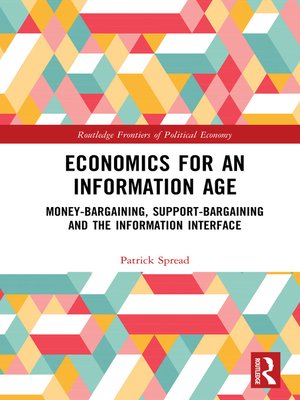Economics for an Information Age
ebook ∣ Money-Bargaining, Support-Bargaining and the Information Interface · Routledge Frontiers of Political Economy
By Patrick Spread

Sign up to save your library
With an OverDrive account, you can save your favorite libraries for at-a-glance information about availability. Find out more about OverDrive accounts.
Find this title in Libby, the library reading app by OverDrive.



Search for a digital library with this title
Title found at these libraries:
| Library Name | Distance |
|---|---|
| Loading... |
Economics for an Information Age examines the central role of information within economics and society. The neoclassical economic model, taught as 'mainstream economics' in universities around the world, relies on a mathematical model of 'resource allocation' in which private advantage gives rise to public advantage in the shape of an optimal allocation of resources. However, this model assumes 'perfect information'. In the present 'information age' such an assumption is even farther from the reality than it was in the past. People disseminate and manipulate information to further their interests.
This book explains economic behaviour in terms of a theory of 'money-bargaining' and political and intellectual 'support-bargaining', in which the dissemination of information plays a central role. It uses this lens to explain how information is created, manipulated, disseminated, organised, understood, interpreted, used, bought and sold.
This book will be of interest to mainstream and heterodox economists alike, as well as historians of economic thought, and anyone who seeks to better understand the impact of the information age on economic behaviour.







